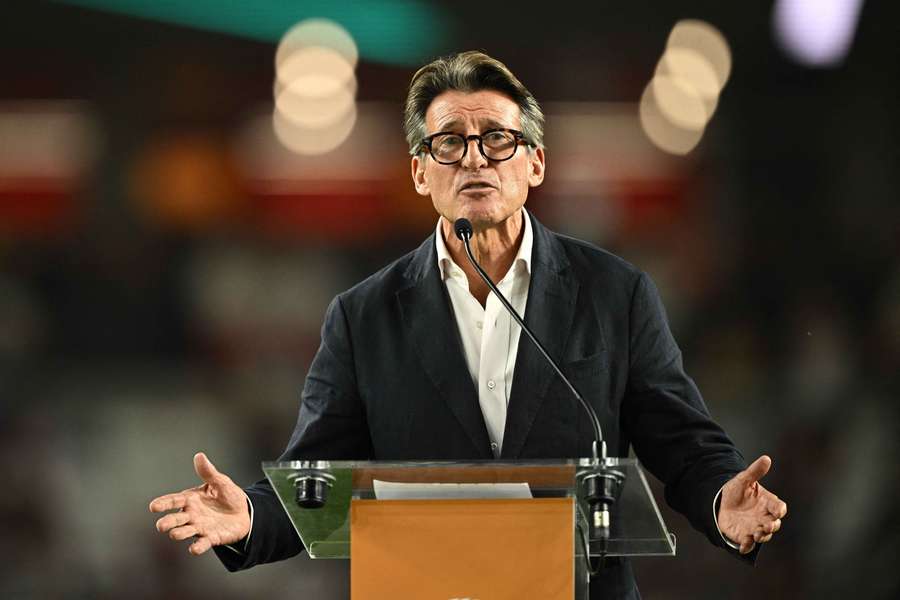Presidential hopeful Seb Coe says IOC needs clear stance on gender

The World Athletics president, one of seven people bidding to replace Thomas Bach in what would be the culmination of an extraordinarily successful sporting career, said the IOC needed clearcut policies to protect women's sport to avoid scandals such as the one in boxing at this year's Paris Games.
A multiple world record holder, Coe won back-to-back Olympic 1,500 metres gold medals and, after a diversion as a Member of Parliament, delivered the hugely successful 2012 London Olympics.
He became WA president in 2015, initiating widespread reforms, and has had a long commercial career in sports marketing.
"I have been in training for this for most of my life. I have a plan and a vision and I think I can make a difference," the Briton told reporters in London in his first formal news conference, ahead of the release of his manifesto next month.
"For anyone who joins an athletics club at the age of 11, who spends their whole life in the Olympic movement, to be entrusted with that role would be an extraordinary honour and a massive moment."
Coe, an IOC member for only four years, has had a somewhat strained relationship with the organisation, despite being the head of its biggest sport.
His decisive action on banning Russian and Belarusians from all athletics, initially due to state-sponsored doping and then after the invasion of Ukraine, was at odds with the views of many IOC members. He antagonised others with his decision to award prize money to Olympic champions in Paris this year, without consulting the IOC first.
Modernisation needed
He believes the IOC is a movement that needs modernising.
"Change is necessary, but not at the risk of destabilising. We are in a fast-changing landscape and I'm not sure you would call it radical reform," he said.
"It needs change in the way it approaches its commercial partnerships, in its broadcast model and it needs to empower the athletes.
"It certainly needs to do more to engage young people, particularly in wanting to pick up sport and use it as a way of life."
As a long-time politician, Coe is used to how big organisations can stifle innovation and he is desperate to make better use of the "outstanding talent" in the organisation.
"At the moment, I don't think we are utilising the undoubted skills of much of that membership in helping shape that direction," he said.
"And that's where I see a shift and a change in our governance structures, allowing voices not just to be heard, but actually to be acted upon."
One area where Coe made it very clear he would push for immediate change is the participation of trans athletes and those with Differences of Sexual Development (DSD) in women's events.
Athletics was at the forefront of formulating a policy that largely excluded them, but the IOC failed to follow suit, instead handing the responsibility to individual sports federations.
When the IOC took over the running of amateur boxing for the Paris Olympics, however, that lack of clarity was thrust into the spotlight by the gold medal success of Algeria's Imane Khelif and Taiwan's Lin Yu-ting, who had previously been banned after adverse sex chromosome tests.
"I felt uncomfortable with that," Coe said. "I think the lesson was that you need clearcut policies and the present framework is not anywhere near clear enough. For me it's a non-negotiable. If you do not protect that category (women's sport), or are in any way ambivalent about it, then it will not end well for women's sport."
Standing against Coe in the March, 2025 election are Kirsty Coventry, Zimbabwe's Sports Minister and former swimmer, Juan Antonio Samaranch - son of the late former IOC president - international cycling chief David Lappartient, Prince Feisal Al Hussein of Jordan, international gymnastics federation head Morinari Watanabe and Olympic newcomer Johan Eliasch.
